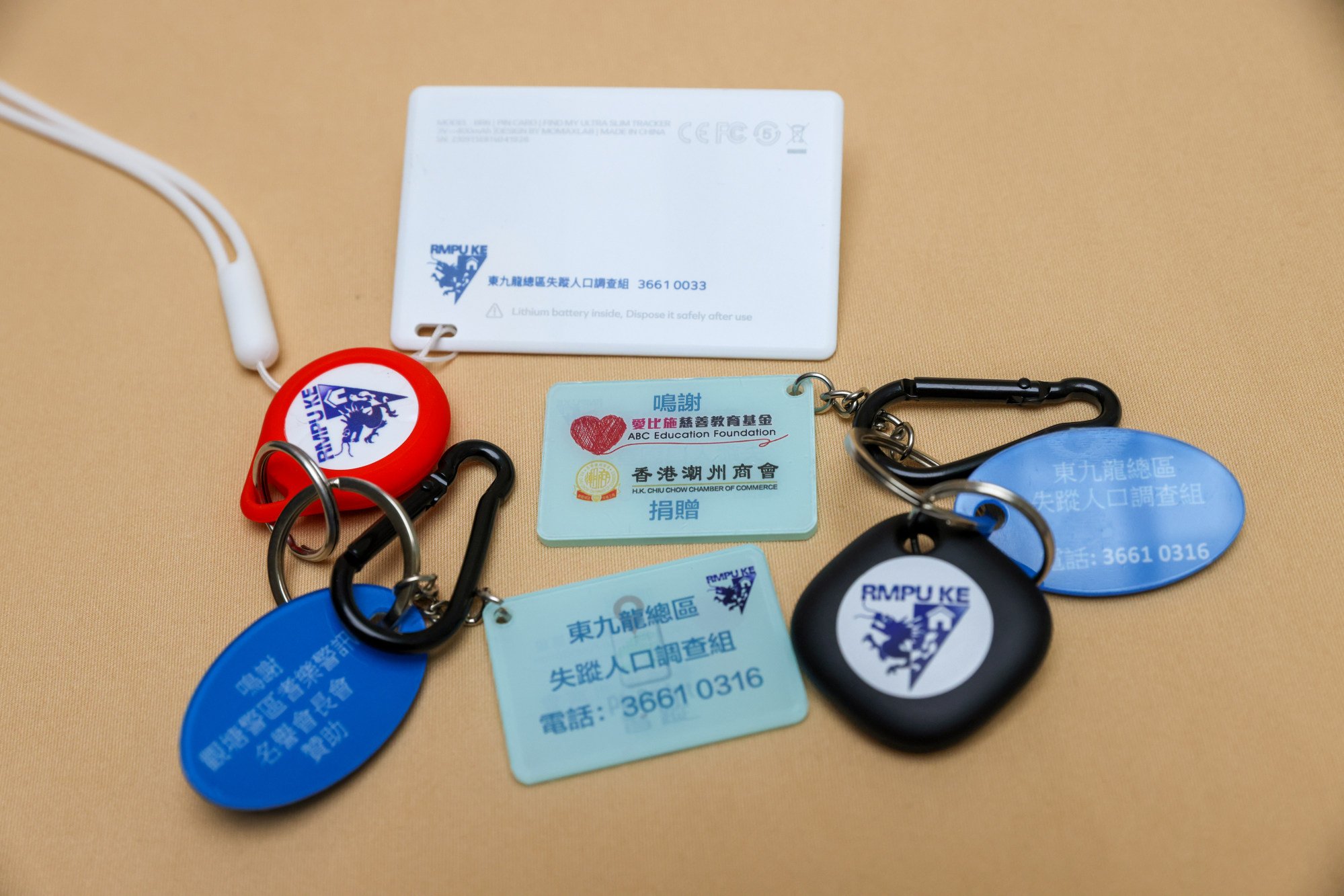Hong Kong police plans citywide distribution of tracking devices to households with family members suffering from dementia
“Police hope that the project could lower the risk of getting lost for those with dementia, at the same time relieve the stress of their carers,” he added.

Since the launch of the Project Pinpoint in 2022, 555 Bluetooth tracking devices have been distributed for free to families in Kowloon East.
When paired with smartphones, the devices help carers track the vulnerable person’s location in real time.
“Among the 555, 328 were given out as a precautionary measure via different charities or NGOs, while 178 were given to cases after they got lost and 49 were taken by citizens who contacted the police directly,” said Senior Inspector Ma Chung-ying, officer-in-charge of the regional missing persons unit in Kowloon East.
The force said 34 people were found using the tracking device in 74 instances of getting lost, and the average search time using the device stood at one hour.
The police did not announce a timeline for making the project citywide but said that the project could extend to other parties who might require the service, such as children with special educational needs.
Hong Kong student designs award-winning interactive app for elderly with dementia
Wong Man-yui, 72, suffers from dementia and depends on his wife, 58, as his primary carer. Before using the device, Mrs Wong shared about a traumatic search for her husband one night last August.
“I was very worried as a typhoon was about to hit Hong Kong and he was nowhere to be found,” she said. “He had no money on him and only an Octopus card. He also needs regular medication for his blood pressure.”
Police eventually found Mr Wong and suggested that the couple use the tracking device, which Mrs Wong said had been of great help.
“I’m much less stressed and I could focus on getting housework or cooking done. He did get lost again but I managed to locate him by myself with the device without the police’s help,” she added.
Chan Fung-man, assistant chief executive of Christian Family Service Centre, said that her organisation had come across many who were worried about their family members getting lost.
Chan said the group introduced some 30 users to the project and received positive feedback of the device, which she said could also give carers peace of mind and maintain a normal social life.
Hong Kong-led team develops blood test that can catch dementia in early stages
Officer Ma said while the scheme relies on ensuring the dementia patient was wearing the device, there are other ways of locating a lost person.
“If the lost person has an Octopus card on them and the carer had previously jotted down the card number, MTR and bus companies could help with checking the ride records [of the patient],” she said.
Between 2022 and 2023, Kowloon East, an ageing area, accounted for 24 per cent of the 802 cases of lost dementia-patients across Hong Kong.
In 2017, some 100,000 elderly residents above the age of 60 had dementia in Hong Kong, with authorities estimating the figure could pass 300,000 in 2039 amid the city’s fast-greying population.
Dementia involves a decline in brain function induced by neurological pathology, which affects a patient’s memory, comprehension, language, learning capacity, calculation and judgment.